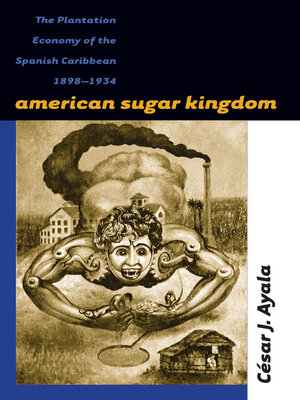American Sugar Kingdom
ebook ∣ The Plantation Economy of the Spanish Caribbean, 1898-1934
By César J. Ayala

Sign up to save your library
With an OverDrive account, you can save your favorite libraries for at-a-glance information about availability. Find out more about OverDrive accounts.
Find this title in Libby, the library reading app by OverDrive.



Search for a digital library with this title
Title found at these libraries:
| Library Name | Distance |
|---|---|
| Loading... |
Engaging conventional arguments that the persistence of plantations is the cause of economic underdevelopment in the Caribbean, this book focuses on the discontinuities in the development of plantation economies in Cuba, Puerto Rico, and the Dominican Republic in the early twentieth century. César Ayala analyzes and compares the explosive growth of sugar production in the three nations following the War of 1898 — when the U.S. acquired Cuba and Puerto Rico — to show how closely the development of the Spanish Caribbean’s modern economic and social class systems is linked to the history of the U.S. sugar industry during its greatest period of expansion and consolidation.
Ayala examines patterns of investment and principal groups of investors, interactions between U.S. capitalists and native planters, contrasts between new and old regions of sugar monoculture, the historical formation of the working class on sugar plantations, and patterns of labor migration. In contrast to most studies of the Spanish Caribbean, which focus on only one country, his account places the history of U.S. colonialism in the region, and the history of plantation agriculture across the region, in comparative perspective.
Ayala examines patterns of investment and principal groups of investors, interactions between U.S. capitalists and native planters, contrasts between new and old regions of sugar monoculture, the historical formation of the working class on sugar plantations, and patterns of labor migration. In contrast to most studies of the Spanish Caribbean, which focus on only one country, his account places the history of U.S. colonialism in the region, and the history of plantation agriculture across the region, in comparative perspective.







